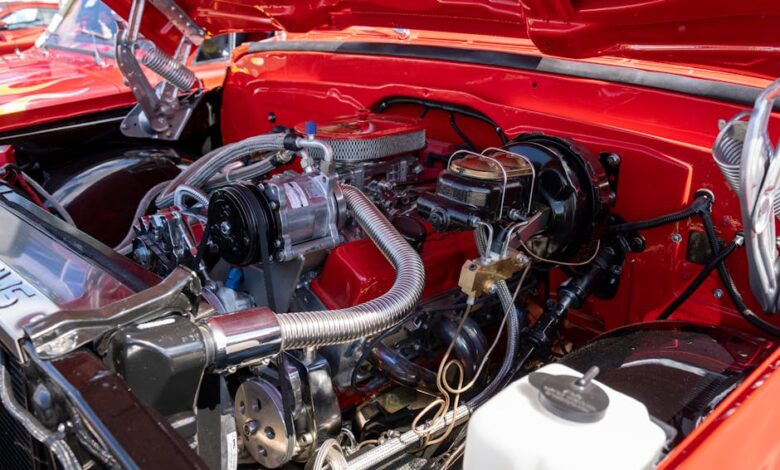Startup Battlefield Company SpotitEarly: Uniting Canine Olfaction and AI to Revolutionize Cancer Detection

Startup Battlefield Company SpotitEarly: Uniting Canine Olfaction and AI to Revolutionize Cancer Detection
Estimated Reading Time: 6 minutes
- SpotitEarly integrates trained canine olfaction with advanced AI for early, non-invasive cancer detection.
- Dogs possess unparalleled scent detection capabilities, identifying cancer-related volatile organic compounds (VOCs) long before traditional methods.
- Artificial Intelligence (AI) standardizes, refines, and scales canine detection outputs, transforming intuitive biological sensing into a robust diagnostic platform.
- An at-home multi-cancer breath test kit, leveraging this unique dog-AI synergy, is projected to be available to consumers in 2026.
- This innovation aims to democratize early cancer screening, promising significantly improved patient outcomes and a shift towards proactive health management.
- The Canine Advantage: Nature’s Most Sensitive Sensors
- Bridging Instinct with Innovation: The Role of Artificial Intelligence
- A Future of Proactive Health: The Impact of Early Detection
- Conclusion
- Frequently Asked Questions (FAQ)
In the relentless pursuit of breakthroughs in healthcare, few challenges loom larger than the early detection of cancer. The earlier cancer is identified, the higher the chances of successful treatment and improved patient outcomes. Yet, many conventional screening methods are invasive, expensive, or not widely accessible. Enter SpotitEarly, a visionary company that captured attention at the prestigious Startup Battlefield, proposing a solution as ancient as it is futuristic: harnessing the extraordinary power of trained dogs combined with cutting-edge artificial intelligence.
SpotitEarly is not just another biotech startup; it represents a paradigm shift. Their audacious goal is to make early cancer screening a simple, non-invasive part of everyone’s health routine. By integrating the unrivaled olfactory capabilities of canines with sophisticated AI algorithms, they are pioneering a new frontier in diagnostic medicine, promising a future where early detection is not a luxury but an accessible reality for all.
The Canine Advantage: Nature’s Most Sensitive Sensors
Dogs possess an olfactory system that is nothing short of miraculous. With up to 300 million olfactory receptors, compared to our mere 6 million, their ability to detect subtle scents is orders of magnitude beyond human capacity. This remarkable sensitivity allows them to pick up on volatile organic compounds (VOCs) – tiny chemical signatures – that cancer cells release, often long before traditional diagnostic methods can identify a tumor.
The concept of using dogs for disease detection isn’t entirely new. For decades, scientific studies have explored their potential in sniffing out conditions ranging from diabetes to various cancers. These studies consistently demonstrate that highly trained dogs can reliably identify specific cancer types from breath, urine, or blood samples with impressive accuracy. SpotitEarly has taken this established scientific premise and elevated it into a scalable, actionable diagnostic platform.
At SpotitEarly, a specialized team of expert handlers trains a cohort of highly focused detection dogs. These canines undergo rigorous conditioning to recognize the unique ‘scent profile’ associated with common cancers, such as lung, breast, prostate, and colorectal cancer. The training process is meticulous, focusing on precision and consistency, ensuring the dogs can differentiate between healthy and cancerous samples even amidst a myriad of other complex biological odors.
The beauty of the canine approach lies in its non-invasiveness and early detection potential. Unlike biopsies or extensive imaging, a dog’s analysis of a breath or urine sample poses no risk or discomfort to the patient. This gentle yet powerful method opens doors for widespread, routine screening, particularly in populations where invasive procedures might be daunting or inaccessible. It’s a testament to the power of biomimicry – learning from nature to solve complex human problems.
Bridging Instinct with Innovation: The Role of Artificial Intelligence
While the dogs provide the initial, unparalleled sensing capability, SpotitEarly’s true innovation lies in how they augment this natural gift with advanced artificial intelligence. Canine detection, while incredibly accurate, can be variable. Factors like a dog’s mood, focus, or even environmental distractions can influence performance. This is where AI steps in, transforming an intuitive biological process into a robust, data-driven diagnostic tool.
SpotitEarly’s system works by having the dogs analyze samples. Their reactions – whether they alert, ignore, or show a change in behavior – are meticulously recorded. These biological “outputs” are then fed into sophisticated AI and machine learning algorithms. The AI doesn’t just record if a dog detected something; it analyzes patterns, consistency across multiple dogs, and correlates these findings with confirmed diagnostic results.
The AI acts as an objective, scalable interpreter and refiner. It learns the nuances of the canine responses, filters out inconsistencies, and builds a comprehensive database of cancer-related VOC profiles. This digital analysis allows SpotitEarly to standardize the detection process, reduce human error, and create an objective, verifiable output. Furthermore, the AI continuously learns and improves as more data is fed into the system, making the diagnostic accuracy sharper over time.
This powerful fusion of canine instinct and artificial intelligence is the cornerstone of SpotitEarly’s most ambitious project: an at-home multi-cancer breath test kit. Leveraging the precise biomarkers identified and refined by their unique dog-AI synergy, this kit aims to bring the power of early detection directly to consumers. The company’s at home multi-cancer breath test kit is expected to be available to consumers in 2026. This development marks a significant leap towards democratizing early cancer screening, transforming it from a clinical procedure into a convenient, accessible health check.
A Future of Proactive Health: The Impact of Early Detection
The implications of SpotitEarly’s technology extend far beyond a novel diagnostic method; they promise a revolution in public health. Early detection is paramount in cancer care. Cancers caught in their earliest stages often have significantly higher survival rates and require less aggressive, less debilitating treatments. Imagine a world where a simple, non-invasive breath test could alert you to the potential presence of cancer years before symptoms appear, allowing for timely intervention and vastly improved prognoses.
SpotitEarly’s vision is to make this proactive health management a reality. By providing an easy-to-use, at-home test, they aim to remove common barriers to screening, such as fear of invasive procedures, lack of access to specialists, or the sheer inconvenience of clinic visits. This accessibility could lead to a dramatic increase in early diagnoses, ultimately saving countless lives and reducing the immense societal burden of advanced-stage cancer treatments.
Real-World Impact Example:
Consider Maria, a 48-year-old single mother with a demanding job and limited time for extensive health screenings. Her family has a history of pancreatic cancer, making her acutely aware of her own risks. Traditional screening for pancreatic cancer can be complex and often only detects the disease at later stages. With SpotitEarly’s future at-home multi-cancer breath test, Maria could easily collect a sample in the comfort of her home. If the test flagged a potential issue, she could then promptly consult her doctor for targeted follow-up, potentially catching a nascent cancer at a stage where treatment is highly effective, allowing her to continue living a full life for her children.
Actionable Steps for a Proactive Approach to Health:
As innovations like SpotitEarly emerge, here’s how you can prepare and engage with the future of preventative health:
- Stay Informed About Emerging Technologies: Follow reputable sources for health news and advancements in early cancer detection. Understanding new options as they become available empowers you to make informed decisions about your health.
- Discuss Your Risk Factors with Your Healthcare Provider: Engage in open conversations with your doctor about your personal and family medical history. This enables them to recommend appropriate traditional screenings and advise you on new technologies as they gain clinical validation.
- Champion Innovation and Awareness: Support organizations and companies dedicated to cancer research and early detection. Share reliable information within your community to raise awareness about the importance of proactive screening and the potential of groundbreaking solutions.
Conclusion
SpotitEarly stands at the exciting intersection of nature’s marvels and human ingenuity. By ingeniously combining the unparalleled olfactory precision of trained dogs with the analytical power of artificial intelligence, they are forging a new path in the early detection of common cancers. Their journey from the Startup Battlefield to the brink of consumer availability signifies a monumental leap towards a future where cancer is detected earlier, treated more effectively, and ultimately, where more lives are saved.
The promise of an accessible, non-invasive multi-cancer breath test in the near future holds tremendous hope. SpotitEarly is not just building a diagnostic tool; they are contributing to a future where preventative health is truly within everyone’s reach, ushering in an era of proactive wellness and extended, healthier lives.
Curious to learn more about the future of early cancer detection?
Frequently Asked Questions (FAQ) About SpotitEarly
-
Q: What is SpotitEarly’s primary mission?
A: SpotitEarly’s primary mission is to revolutionize early cancer detection by making screening simple, non-invasive, and widely accessible, ultimately improving patient outcomes through timely intervention.
-
Q: How do dogs contribute to cancer detection at SpotitEarly?
A: Dogs possess an extraordinary sense of smell, allowing them to detect subtle volatile organic compounds (VOCs) released by cancer cells in samples like breath or urine, often before traditional methods. SpotitEarly trains specialized detection dogs for this purpose.
-
Q: What role does Artificial Intelligence (AI) play in SpotitEarly’s technology?
A: AI is crucial for standardizing and refining the canine detection process. It analyzes patterns in dog reactions, filters inconsistencies, and correlates findings with diagnostic results, transforming intuitive biological sensing into a robust, data-driven diagnostic tool.
-
Q: When is SpotitEarly’s at-home multi-cancer breath test expected to be available?
A: SpotitEarly’s at-home multi-cancer breath test kit is expected to be available to consumers in 2026.
-
Q: What are the main benefits of early cancer detection facilitated by SpotitEarly?
A: Early detection significantly increases survival rates, often requires less aggressive treatments, and reduces the overall burden of advanced-stage cancer. SpotitEarly’s accessible, non-invasive method aims to democratize this benefit, leading to more lives saved and a healthier population.





